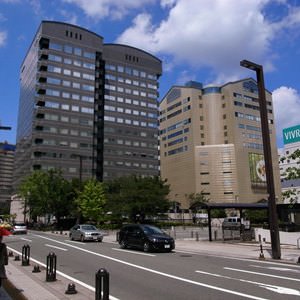Map of wind conditions for Fukuoka area
Map of Fukuoka temperature forecast
1. You can zoom in to Fukuoka using the '+' button, or check temperatures around the globe by the '-' button.2. Besides this, you can grab the map by your mouse button and move it to see the temperature in other regions.
This temperature map is centered around Fukuoka. The map is real-time and interactive.
Rain forecast for Fukuoka area
1. Using the control panel above this map, you can check the rain forecast for Fukuoka for any period within next 10 days.2. Via the top control panel, you can check the following weather parameters: Temperature, Cloud cover, Precipitation, Wind and Pressure.
This precipitation forecast map is centered around Fukuoka. The map is also real-time and interactive.




